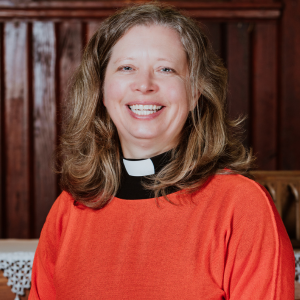Average churchgoers and scholars alike have been asking hard questions about our theology and practice of Christianity for years. The 1960s marked a watershed in such questioning as we noticed secularism taking hold, and concerns for justice and civil rights of all kinds rose in our consciences. Church observers began wondering if we were witnessing a simple generational shift or something more expansive.
The turn of the century brought even more changes, as “postmodern” became the word du jour. Beginning in architecture and philosophy, it soon expanded to describe a broader cultural phenomenon. Deeply held modern values around our human ability to solve all our problems through objective thinking and scientific and technological advances shifted dramatically. Instead of mechanistic and dualistic understandings of the universe, people started to value more relational, personal and integrated ways of being.
Phyllis Tickle explained it all to us with her 2008 landmark book The Great Emergence: How Christianity is Changing and Why. She offered a theory of what might be going on through the macro lens of history. “Every 500 years, the church feels compelled to hold a giant rummage sale,” she quotes from Bishop Mark Dyer. Many people have come to believe that we are living in such a time now, a time of epochal shift, and that we’re still in the early days of working out “what now?” and “what next?”
A macro perspective reminds us that we are caught up in cultural, spiritual and societal forces larger than ourselves or our church. It’s not all about us. Far from it. And still, we are not powerless. Out of our love for one another, for our world and for our church, Jesus still calls us to Christian discipleship. How are we to live it?
Ron Heifetz’s theory of technical and adaptive change offers practices to build our capacity to engage in the most difficult and messy issues of our time — within and outside the church. Learning skills of adaptation will not likely answer questions like “how can we get young people back?” Instead, adaptive capacity can help us move forward in faith, whatever the future may hold.
Change, by its very nature, means loss. So, our adaptive capacity starts with grief and repentance, as we let go of the beliefs, the practices, the ways of being in the world, that served us so well in days gone by. “Right-sizing,” refocusing, our institutional life may be necessary as we seek to decolonize and “eco” our theology. And as we experiment with various ways of being church together: in worship, in spirituality, in justice making, in service and in community. Such adaptation is not easy, but it is worth it, as we follow the risen Christ, with the inspiration of the Holy Spirit, in our journey of faith.
Earlier this year, we explored these topics at St George’s, Cadboro Bay over the course of 4 weeks. Resources are available on the St George’s website.




